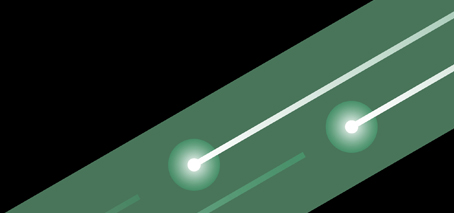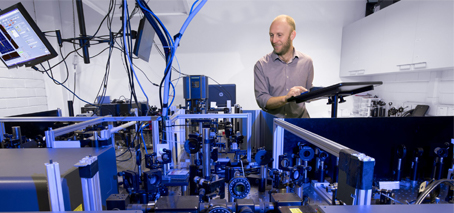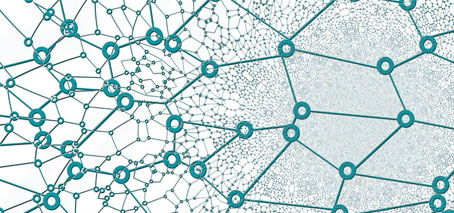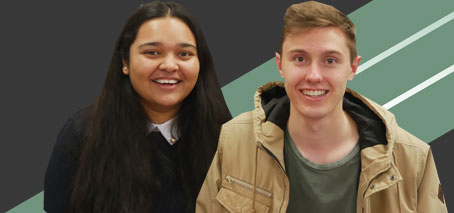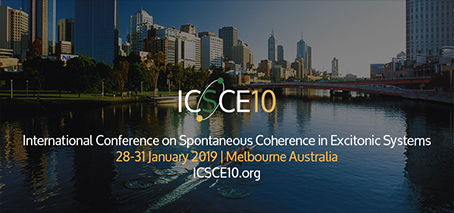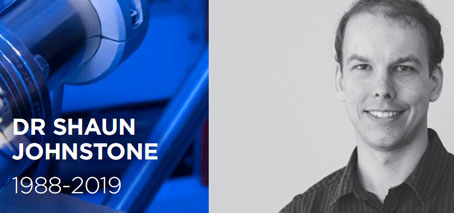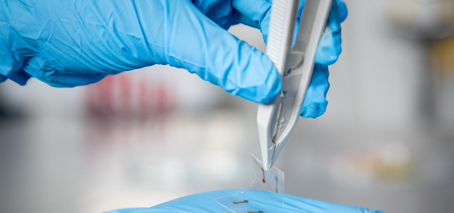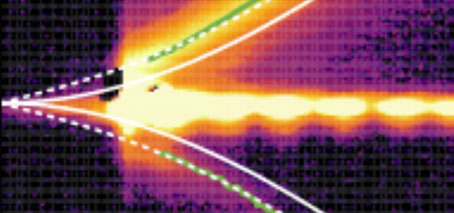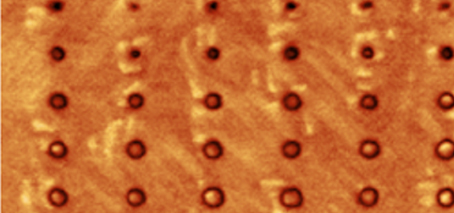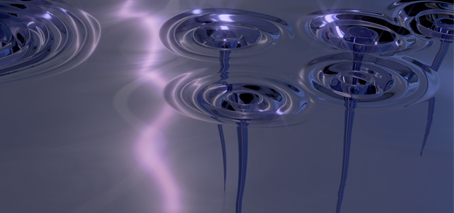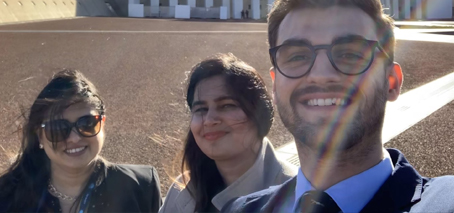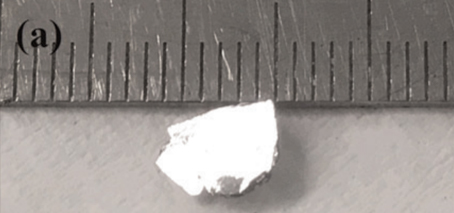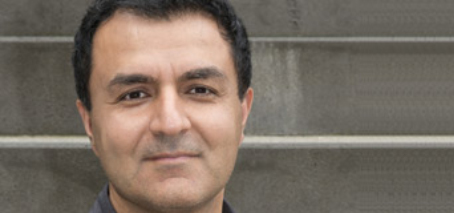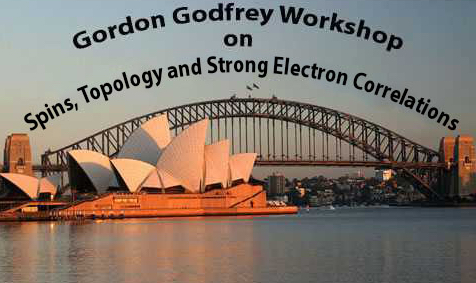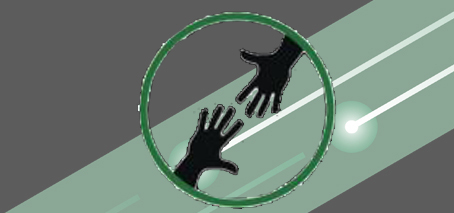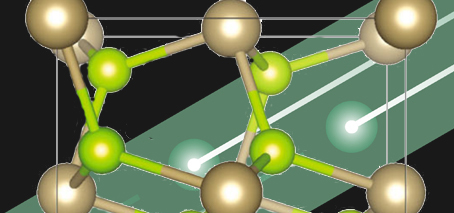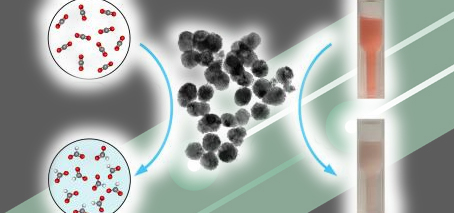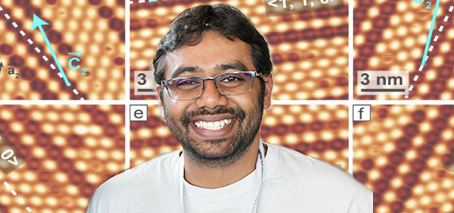Improving the situation of women in physics calls for complex cultural challenges. We must be sensitive to potential challenges of resistance and backlash. Following the 2018 survey, FLEET conducted a second comprehensive cultural survey of its members to determine attitudes to gender equity. An impressive 53% of members responded, revealing that: Over 80% found their workplace inclusive and respectful 90% …
Ultrafast laser spectroscopy workshop getting everyone up to speed
A mini-symposium on ultrafast laser spectroscopy last week brought together the ultrafast laser spectroscopy community in Australia and New Zealand, showcasing local ultrafast laser spectroscopy research and capabilities. Exciton Science and FLEET co-sponsored the Ultrafast Laser Spectroscopy Mini-Symposium at Swinburne, which saw 45 researchers attending from 12 different unis/orgs. At FLEET, ultrafast spectroscopy is used to help understand the microscopic …
New partnerships with STEM equity change agents: MAGIC and DCA
Two significant, long-term partnerships will progress FLEET’s equity goals as well as supporting change in the Australian STEM community. FLEET was pleased to be a sponsor for this year’s annual MAGIC mentoring workshop, which provides mentoring and skills development for early-career female and gender-diverse researchers in maths and physical science. FLEET’s three-year partnership with Mentoring and Guidance in Careers (MAGIC) …
Taste of research: UNSW
UNSW’s Taste of Research program provides undergraduate Physics students the opportunity to undertake a small research project with one of the research groups in the School. Cecilia Bloise asked students Seamus Lilley and Krittika Kumar who worked with FLEET PhD Yonatan Ashlea Alava, to describe the experience for our research blog… What are you working on Seamus? “I worked …
Establishing a collaborative culture across FLEET in 2019
First research workshop organised by early-career researchers (ECRs) and students Cross-node publications increased by 18% (from 7 to 11 ) Four FLEET-wide, live-streamed seminars run in 2019 (target 10) New $50,000 grant created for collaborative projects with partner MacDiarmid Institute New $20,000 funding pool established for ECR collaborative grants with partner organisations Christmas in July social event, Melbourne nodes 30 …
International quantum-coherence conference hosted in Melbourne
In January 2020 FLEET brought the 10th International Conference on Spontaneous Coherence in Excitonic Systems (ICSCE10) to Australia for the first time. Continuing this 15-year tradition from the global scientific community interested in various quantum phenomena, ICSCE10 was hosted at the Arts Centre Melbourne amidst smoke storms resulting from what was one of the worst bushfire seasons in Australia’s history. …
Shaun Johnstone 1988-2019
We lost a dear friend in 2019, with the passing of Shaun Johnstone. We are deeply saddened for the loss of this quietly brilliant, lovely young man, and for the grief of his wife, Melissa, family Phil, Judy, Grace and Mark, and his wide circle of friends in the physics community and beyond. Shaun was a brilliant physicist, with outstanding …
Open letter on bushfires and climate change
“Climate change has arrived, and without significant action greater impacts on Australia are inevitable.” From this week’s open letter on bushfires, signed by 80 ARC Laureates, including FLEET Director Prof Michael Fuhrer (Monash University School of Physics and Astronomy) read the letter | read coverage
Nano-thin flexible touchscreens could be printed like newspaper
Researchers have developed an ultra-thin and ultra-flexible electronic material, able to be printed and rolled out like newspaper, for the touchscreens of the future. The touch-responsive technology is 100 times thinner than existing touchscreen materials and so pliable it can be rolled up like a tube. To create the new conductive sheet, an RMIT University-led team used a thin film …
Ghostly particles detected in condensates of light and matter
Australian research collaboration makes first detection of ‘ghost particles’ from Bose-Einstein condensates made of light and matter. The ANU/Monash University collaboration study: Observed ‘quantum depletion’ for the first time in a non-equilibrium condensate Discovered that ‘light-like’ condensates don’t behave as we would expect Observed ‘ghost’ excitations arising from quantum depletion for the first time. Quantum depletion observed for the first …
Extending FLEET’s engagement with school students
In 2019, FLEET cemented its relationship with Monash Tech School continuing to be involved as the school ramped up its activity. FLEET’s fruitful partnership with Monash Tech School features lab tours that provide hands-on science experiences for participating secondary students. From May to December, FLEET provided lab tours and activities on an almost weekly basis for Year 8 students from …
Designer-defect mediated clamping of ferroelectric domain walls for more-stable nanoelectronics
Improved polarisation retention in ferroelectric a significant step forward for domain-wall nanoelectronics in data storage Engineering defects in ferroelectrics provides key to improved polarisation stability Researchers achieved stability greater than one year (a 2000% improvement) A UNSW study published today in Nature Communications presents an exciting step towards domain-wall nanoelectronics: a novel form of future electronics based on nano-scale conduction …
Voltage induced ‘Super-fluid like’ penetration effects in Liquid metals at room temperature
Superfluids were first discovered as a special quantum state of liquid helium, later dubbed as “Superfluid helium” once chilled past -269 degree celsius, starts to manifest properties that do not occur in other fluids. Penetration through a solid with nano-pores is one of the three fascinating macroscopic phenomena that are well known in superfluids such as liquid helium. It is …
Collaborating 2019
FLEET continues to build links with other science organisations within Australia to further the reach of science, advance equity issues and develop future leaders, for example: Sponsoring childcare at the annual Science Meets Parliament, with Science and Technology Australia (STA) Running pitch training with two other ARC Centres of Excellence Co-sponsoring Physics in the Pub with three ARC Centres of …
Quantum tornado on a silicon chip
Self-forming quantum liquids on a silicon chip could revolutionise our understanding of turbulence and enable new technologies for precision navigation. Researchers at The University of Queensland have developed the first methods to bring together quantum liquids with modern silicon-chip based technology, allowing the observations of nanoscale quantum turbulence that mirrors the behaviour of a cyclone. Professor Warwick Bowen, from UQ’s …
Three of FLEET’s future science leaders engaging with policy-makers
FLEET had a team of three researchers at Science meets Parliament (SMP) in November, talking to parliamentarians and other scientists from around the country, and perfecting the art of pitching to politicians. FLEET’s gun team were: Hareem Khan (RMIT), Oliver Stockdale (UQ) and Semonti Bhattacharyya (Monash). Science Meets Parliament is an annual meeting of Australia’s policy-makers with leading and emerging …
Mind the gap: FLEET team from Wollongong and Monash reveal a wide-band gap topological insulator
Since their discovery in 2006, topological insulators have been widely discussed as a promising avenue for energy efficient electronics. Their unique high mobility edge states have a form of “quantum armour” that protects them from electron-scattering events that would otherwise produce waste heat. Unfortunately, practical applications of topological insulators have been severely limited by the small electronic bandgaps in most …
New Chairs announced
Welcoming new FLEET committee Chairs: Jeff Davis (Swinburne University of Technology) Equity and Diversity Committee Meera Parish (Monash Science) Outreach Jared Cole (RMIT University) Education and Training Torben Daeneke (RMIT) Industry relations David Cortie (University of Wollongong) Communications Thanks in particular to AIs Torben Daeneke and David Cortie for taking on these extra responsibilities. And huge thanks to the outgoing …
Kourosh recognised
FLEET’s Kourosh Kalantar-zadeh (UNSW/RMIT) has been awarded the 2019 Walter Burfitt Prize by the Royal Society of NSW, recognising Kourosh’s excellent research in liquid metals, atomically thin materials and ingestible sensors. The Walter Burfitt Prize is awarded every three years for research in pure or applied science deemed of the highest scientific merit. This year’s Royal Society prize recognises Professor Kalantar-Zadeh’s …
Discovery Projects $2.6m funding boosts FLEET research
Yesterday’s ARC Discover Project announcement saw FLEET research and researchers across three Australian universities awarded additional funding. Across five separate grants, over $2.6m new research funding went to projects and facilities led by FLEET researchers, complementing FLEET’s search to develop ultra-low energy electronics and boost related areas of research. Australia’s Minister for Education Dan Tehan yesterday announced almost $285 million …
Gordon Godfrey Workshop advances Australian quantum physics
Almost 120 researchers gathered in UNSW last week to discuss spin and strong-electron correlations in the university’s biennial Gordon Godfrey Workshop. The 2019 Gordon Godfrey Workshop on Spins and Strong Correlations was held at UNSW’s School of Physics for five days from 25 to 29 November. The Gordon Godfrey Workshops, which have been running since 1991, provide a forum for Australian and international researchers to exchange ideas and …
Developing future scientific leaders
FLEET tops up external funding to build leadership skills Two of FLEET’s six strategic priorities are developing the next generation of science leaders, and fostering equity and diversity in STEM. Establishing career support initiatives for women in FLEET is an important milestone towards achieving each of these goals. FLEET will provide an environment for our early-career women to thrive and …
Discussing future science with future scientists (Queensland)
FLEET’s Matt Davis (node leader University of Queensland) discussed the future of science with some of Australia’s future scientists this month at Ipswich State High School, with local MP Shayne Neumann and James Rasmussen of Origin Energy.
Clarivate highly-cited researchers
Congratulations to FLEET Chief Investigators: Kourosh Kalantar-zadeh (UNSW and RMIT) in chemistry, engineering, material science and medical devices Qiaoliang Bao (Monash University) in 2D materials science, graphene, photonics, optoelectronics and optical comms The Clarivate Analytics list identifies researchers ranking in the top 1% by citations for their field. The citation identifies influential researchers as determined by their peers around the …
New spin directions in pyrite an encouraging sign for future spintronics
first theoretical demonstration of both in-plane and out-of-plane spin highly energy- and direction- dependent behaviour discovered interplay between surface and bulk states plays a critical role in surface spin texture A Monash University study revealing new spin textures in pyrite could unlock these materials’ potential in future spintronics devices. The study of pyrite-type materials provides new insights and opportunities for …
Future electronics and theoretical physics: Sam Bladwell interviewed
FLEET’s Sam Bladwell (UNSW) was recently interviewed by Ian Woolf on Diffusion Radio, discussing the ICT energy issue that drives FLEET’s research as well as his own theoretical studies into spin. Listen to: Future low-energy electronics Battling jetlag, Sam describes spintronics and the need for low-energy electronics (from 6:35min) Spins and valleys Sam describes how his theoretical studies dovetail with …
Welcome Mingliang Tian (CAS): new FLEET PI
FLEET extends a warm welcome to Professor Mingliang Tian, who joins the Centre as a new Partner Investigator. Professor Tian is vice-director of the Chinese Academy of Science’s High Magnetic Field Laboratory in Anhui province, China, which becomes a new partner organisation for FLEET. At the CAS, Professor Tian’s group studies on low-dimensional electronic systems and artificial nanostructures such as …
Liquid metals the secret ingredients to clean up environment
Forget the laboratory, substances that can solve environmental problems by capturing carbon dioxide, decontaminating water and cleaning up pollutants can be easily created in a kitchen, a UNSW Sydney study shows. In a paper published today in Nature Communications, UNSW chemical engineers shone a light on the mysterious world of liquid metals and their role as catalysts to speed up chemical …
Controlling the charge state of organic molecule quantum dots in a 2D nanoarray
Molecular self-assembly on a metal results in high-density 2D organic (carbon-based) quantum dot array with electric-field-controllable charge state Organic molecules used as nano-sized building blocks in fabrication of functional nanomaterials The achieved densities of the 2D organic quantum-dot arrays are an order of magnitude larger than conventional inorganic systems. A Monash University experimental study has fabricated a self-assembled, carbon-based nanofilm …
UNSW student focuses kilometre-long laser
UNSW PhD student focuses one-km long laser to probe electronic structure Measuring femto-second responses on X-ray Free Electron Laser (XFEL) One of the highest energies of any synchrotron in the world. “It’s a pretty surreal being at the pointy end of almost a kilometre-long laser,” says UNSW PhD student Oliver Paull. “Not because of any danger from the laser (even …

